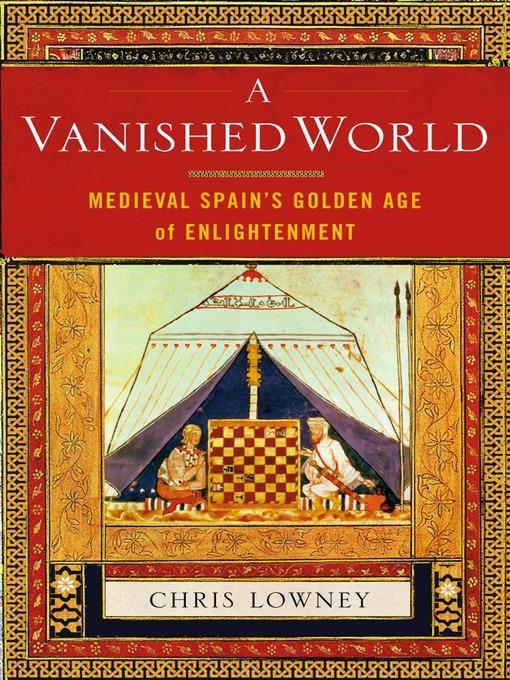
A Vanished World
Medieval Spain's Golden Age of Enlightenment
- اطلاعات
- نقد و بررسی
- دیدگاه کاربران
نقد و بررسی

Starred review from February 28, 2005
This bold and compassionate articulation of medieval Spanish history, with its complex interactions among Jews, Muslims and Christians, speaks directly to contemporary international crises. Lowney (Heroic Leadership: Best Practices from a 450-Year-Old Company That Changed the World
) is more explicit in providing ethical lessons than Maria Rosa Menocal in Ornament of the World: How Muslims, Jews, and Christians Created a Culture of Tolerance in Medieval Spain
, but his convictions are gently woven into the narrative and are never didactic. Lowney tells the tale of coexistence, and its eventual unraveling, with detail, delicacy and verve, avoiding a romanticized exaggeration of tolerance. He is hardheaded about the motives that underlay an acceptance of religious diversity in medieval Iberia, and is acutely aware of the period's dark ironies: for instance, Muslim Granada survived by selling out its coreligionists in Seville, and Alfonso the Wise had a schizophrenic relationship with Spanish Jews. Lowney's account reflects a good deal of recent scholarship and avoids stereotypical recasting of the Black Legend; students of medieval history will learn much from Lowney's fresh perspective. But he remains sensitive to the indissoluble pain that accompanied the disasters of the late Middle Ages. This engrossing and illuminating book deserves the attention of a wide public. One map. Agent, Jim Fitzgerald.

June 1, 2005
Ex-Jesuit and former J.P. Morgan executive Lowney ("Heroic Leadership") presents a thoughtful work on a vanished era in medieval Spain when religious tolerance prevailed. After the Muslims shoved the Visigoths out of the Iberian Peninsula in 711, there evolved an intellectually vibrant community of Jewish, Christian, and Muslim philosophers, mathematicians, poets, mystics, and scientists that proved to be the fount of Spain's Golden Age of Enlightenment. Moses Maimonides, Ibn al-Arabi, and Pope Sylvester II were just a few of the Spanish intellectuals who breathed enlightenment into Europe's struggle out of the Dark Ages. Sadly, tolerance among the three monotheistic religions did not ultimately prevail and, by the time of the rule of Ferdinand and Isabella, religious persecution had become institutionalized via the Inquisition, begun in 1478. Lowney skillfully leads the reader to the conclusion that there is indeed a historical precedent for the three major religions establishing a beneficially symbiotic relationship -a pertinent message for the 21st century. Although Lowney's treatise comes hard on the heels of Maria Menocal's critically acclaimed "The Ornament of the World: How Muslims, Jews and Christians Created a Culture of Tolerance in Medieval Spain", no public or academic library will suffer with both of these significant studies in its medieval history collection. -Jim Doyle, Sara Hightower Regional Lib., Rome, GA
Copyright 2005 Library Journal, LLC Used with permission.

April 1, 2005
To organize Spanish history from the Muslim conquest of 711 to the completion in 1492 of the Catholic " Reconquista," Lowney deploys a set of minibiographies. The author's main concern, however, is not biographical: writing with contemporary religious strife in mind (Lowney's first words are about the Madrid terrorist atrocity of March 2004), the author explores the thoughts and actions of his subjects--Muslim, Christian, or Jew--toward the religious other. Lowney's eye on the present does not negatively affect his presentation as popular history, for the portraits are vivid and even mordant, and strict historical accuracy is often impossible to ascertain. Unrolling the centuries, Lowney includes heroic icons such as El Cid, and figures who, like him though not as famous, were less than convert-or-die totalists in religious conflicts. Lowney's accomplished work comprehensibly covers medieval Spain and connects the country's past to its present.(Reprinted with permission of Booklist, copyright 2005, American Library Association.)




دیدگاه کاربران